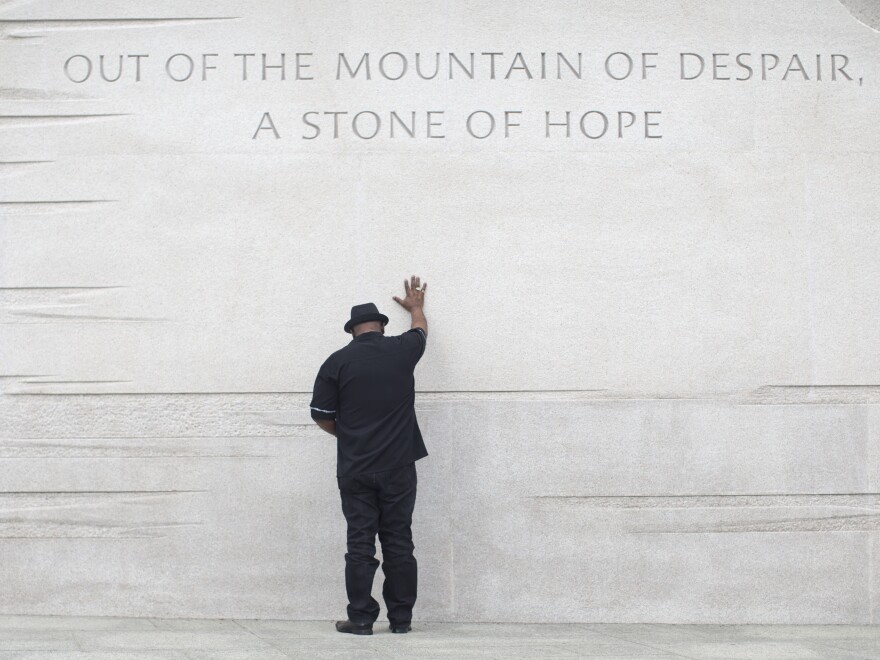(This post last updated at 2:20 p.m. ET)
Tens of thousands of people assembled on the National Mall to commemorate the 50th anniversary of Martin Luther King Jr.'s 1963 March on Washington, best known as the venue for the iconic "I Have a Dream" speech that helped galvanize the civil rights movement.
Organizers, including the Rev. Al Sharpton and King's son, Martin Luther King III, had hoped to attract 100,000 people to attend Saturday's events leading up the official Aug. 28 anniversary.

"This is not the time for nostalgic commemoration," said the slain civil right's leader's oldest son. "Nor is this the time for self-congratulatory celebration. The task is not done. The journey is not complete. We can and we must do more."
Attorney General Eric Holder told the crowd that King's words helped alter the course of history.
"He assured his fellow citizens that this goal was within reach – so long as they kept faith with one another, and maintained the courage and commitment to work toward it," Holder said. "And he urged them to do just that. By calling for no more – and no less – than equal justice."
Holder said neither he nor President Obama would be in office without those who took part in 1963.
"They marched in spite of animosity, oppression and brutality because they believed in the greatness of what this nation could become and despaired of the founding promises not kept," Holder said.
The speeches are to be followed by a half-mile walk from the Lincoln Memorial to the 2-year-old Martin Luther King Jr. Memorial.
NPR's Allison Keyes, speaking with Weekend Edition Saturday host Scott Simon, says some people who showed up for the march who are in their 20s and 30s "want to be part of history. They weren't born yet in 1963 when their parents marched," others, she said, are concerned about what they see as a "consistent turning back the clock on progress."
"They're talking about the Supreme Court decision that just struck down part of the Voting Rights Act, they are talking about Stand Your Ground laws, Stop-and-Frisk in New York City, there are a lot of people that say the verdict in the Trayvon Martin case has been a thing that upset them," Keyes says.
David Cakely from Goose Creek, S.C., tells NPR that he's a little sad that some of the same issues talked about at the time of the original march five decades ago have yet to be resolved.
"I was kind of disappointed on that," Cakely says. "I thought by this time we would have had all this taken care of – everybody moving together, Kumbaya, but that's not the case right now, so we're ... here today to show America that we're concerned."
Copyright 2020 NPR. To see more, visit https://www.npr.org. 9(MDA4MDYxNjY4MDEzMTQ2OTkxMzkyOWU2NQ004))



